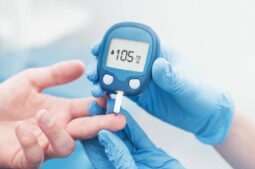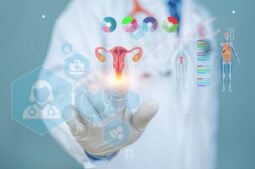
Today, many of you (if not the vast majority) will be familiar with the term “vitrification,” or second women’s revolution, as this important scientific breakthrough is called by some.
And indeed, after the contraceptive pill, vitrification of oocytes has allowed women to gain a necessary and historically claimed right: the freedom to decide.
When and how to be a mother is an option that currently every woman has at her own discretion and choice. This reality, which 20 years ago was more utopian than feasible, has been made possible by the aforementioned vitrification technique. Its success has marked the future of the field of assisted reproduction and today we have the pleasure of sharing with you something that makes us particularly excited:
The pioneering research on vitrification worldwide, led by one of our specialists, Dr. Ana Cobo, has been recognized by the American Society for Reproductive Medicine (ASRM) as one of the 25 best studies in the 75-year history of this society, one of the most important in the world.
Dr. Cobo is the director of the Cryobiology Unit of IVI Valencia, and by many colleagues she is known as the “mother of vitrification”, due to her relevant findings regarding this technique.
Vitrification has evolved and with it the results achieved, which today are so promising that the preservation of women’s eggs is emerging as a rising alternative that is highly efficient in its subsequent use in reproductive treatments.
The research work recognized by the ASRM, entitled “Comparison of concomitant outcome achieved with fresh and cryopreserved donor oocytes vitrified by the Cryotop method”, led to the widespread use of oocyte vitrification in daily clinical practice a little over a decade ago, becoming pioneering research worldwide in terms of the clinical application of the method.
“We took oocytes from the same donor, vitrified half of them and thawed them after an hour, while the other half of the oocytes remained in the incubator. Once the oocytes were devitrified, we fertilized them along with the fresh ones, with the same semen and at the same time. This allowed us to assess the development of embryos generated from vitrified and fresh oocytes under the same conditions, comparing fertilization rates, early division and development to blastocyst. And we were pleasantly surprised to see that the results obtained were similar as regards these 3 parameters, which prompted us to start vitrifying donor eggs, as we knew they would survive and that the resulting embryos had the same potential to implant and lead to evolutionary pregnancies as embryos from fresh oocytes”, explained Dr. Cobo.
This research enabled the possibility of obtaining viable embryos with vitrified oocytes to be demonstrated, a method that hundreds of centres and professionals in the field have replicated in later years.
“This has meant that today we have consistent and efficient cryopreservation programmes that many patients with very different indications can benefit from: patients on reproductive treatment with low ovarian response, as an alternative to avoid the risk of ovarian hyperstimulation, women who decide to preserve their fertility, for medical reasons, oncology or by choice, and even patients with endometriosis, a disease that may compromise their future fertility, in which we have recently shown the encouraging results of oocyte vitrification”, added Dr. Cobo.
The conservation of oocytes in banks is standard procedure in donation programmes today, a process that is constantly being improved and that has greatly reduced, and even eliminated in some cases, long waiting lists.
And yet, although this technique and its efficiency paint a very optimistic picture for motherhood, there are limiting factors that we should not lose sight of, such as age and the number of oocytes.
“The truth is that the cryopreservation of female gametes is currently an essential part of assisted reproduction, given the high success rates achieved through the optimization of this technique, but it is important to encourage women and raise awareness about the need to vitrify their eggs before the age of 35, as from this age their fertility begins to decrease and with it the chances of reproductive success”, said Dr. Cobo.
This award from the ASRM rewards the tireless work of a multidisciplinary team of specialists who research to achieve the best results to fulfil the dreams of all those women and couples who wish to become parents.
“Being among the 25 best works of the ASRM is an honour for me, a milestone, and a huge satisfaction, not only on a personal level, but also for the work carried out by our team of top-level professionals. The dedication of each and every one of them and their involvement with the patients, as well as the incessant research work they carry out allows us to apply findings like this on a large scale, which is essential in the validation of any technique and any strategy at the clinical level”, concluded Dr. Cobo.





Comments are closed here.